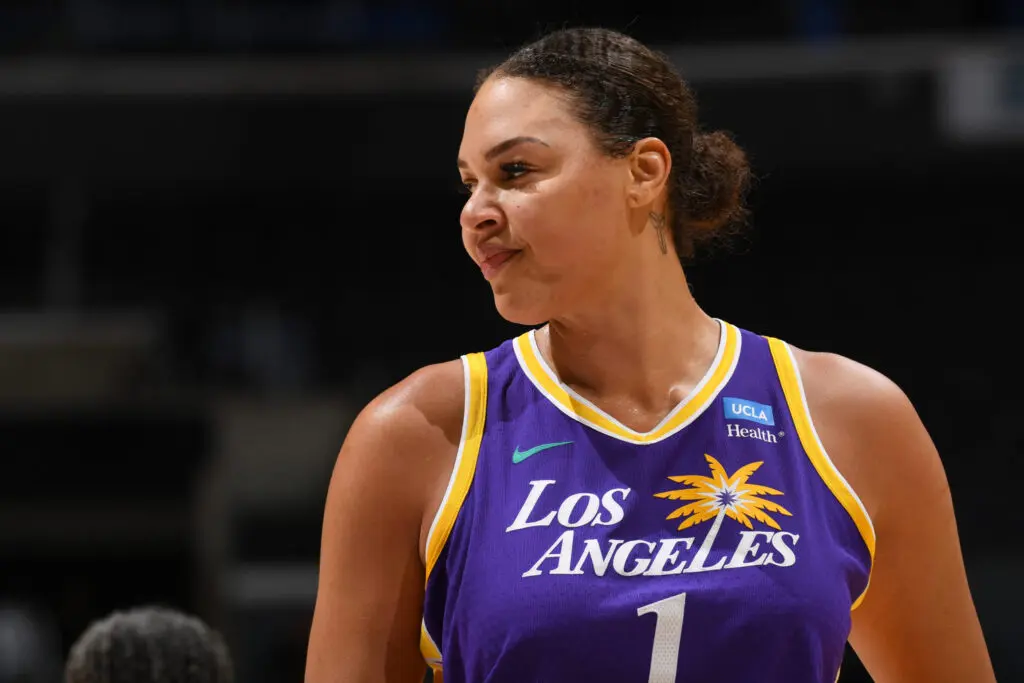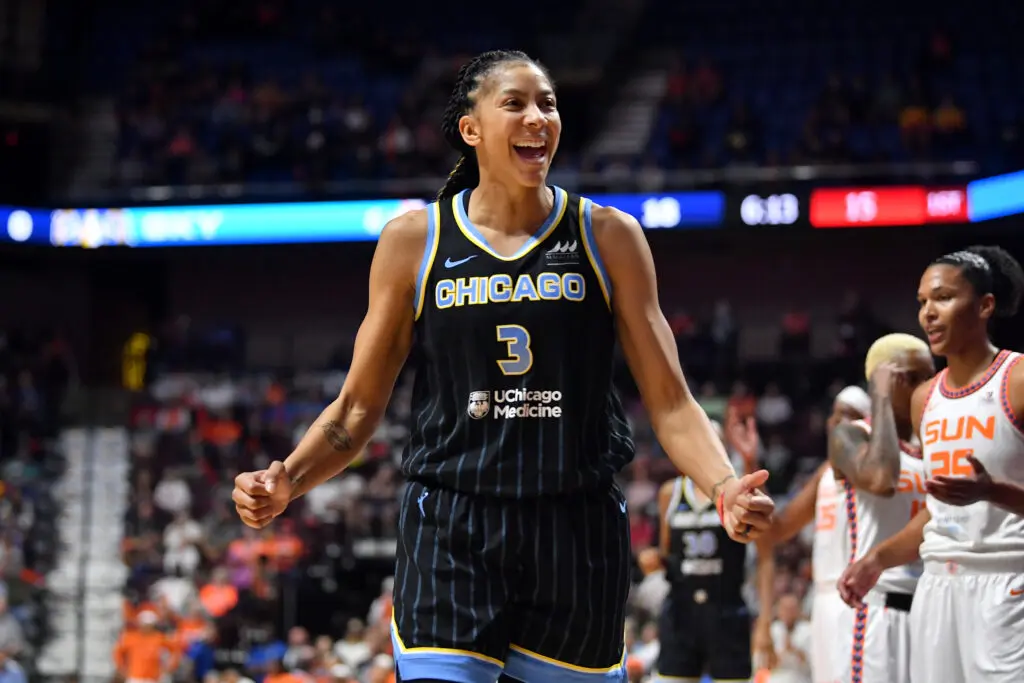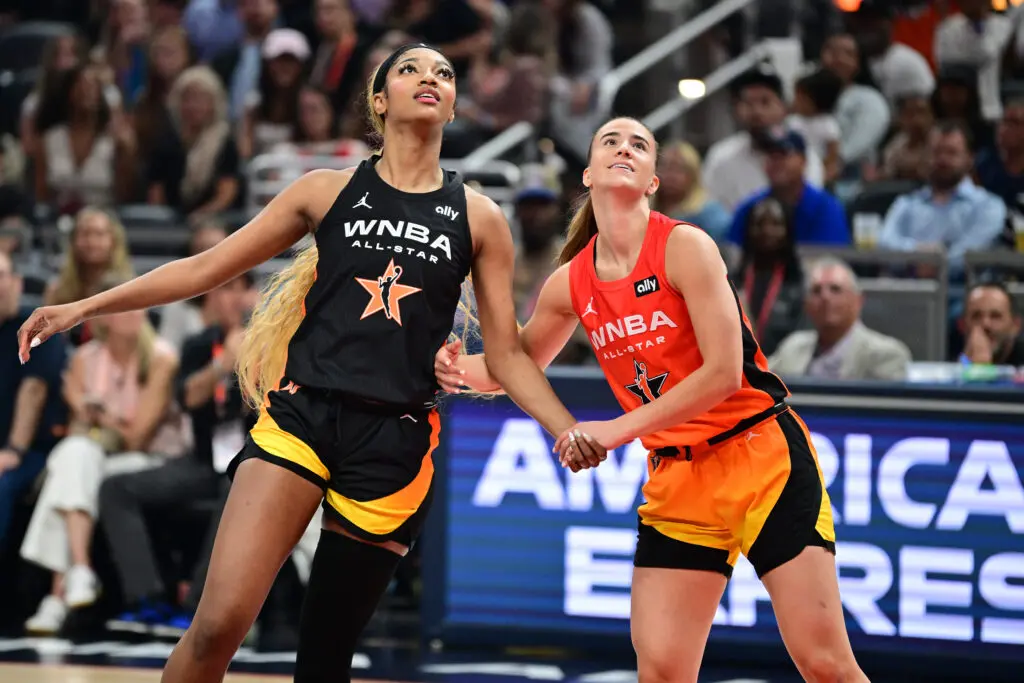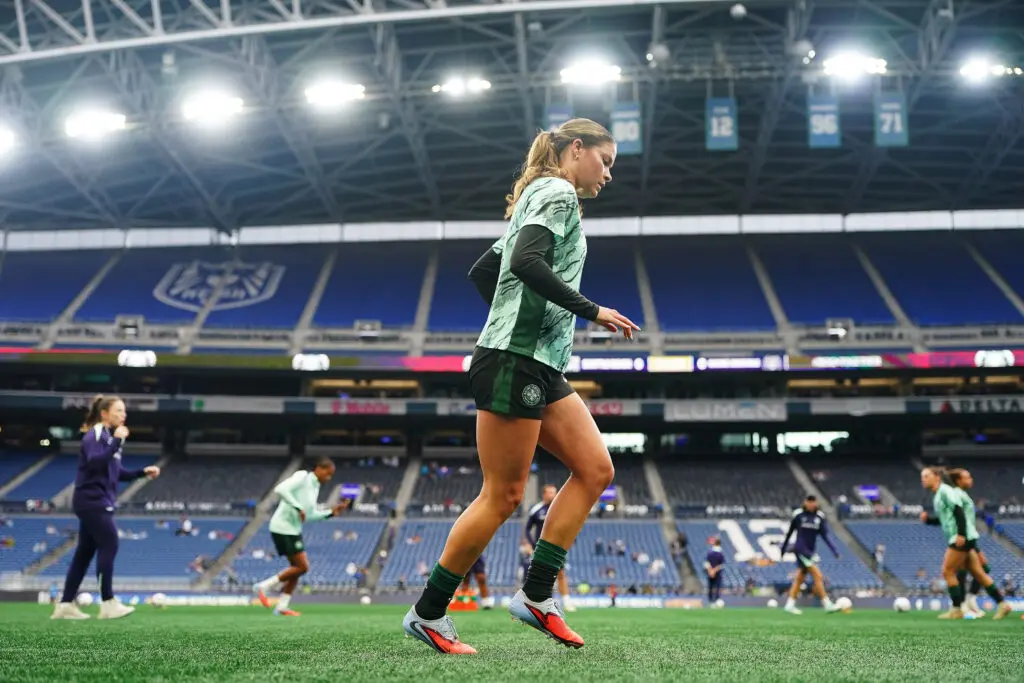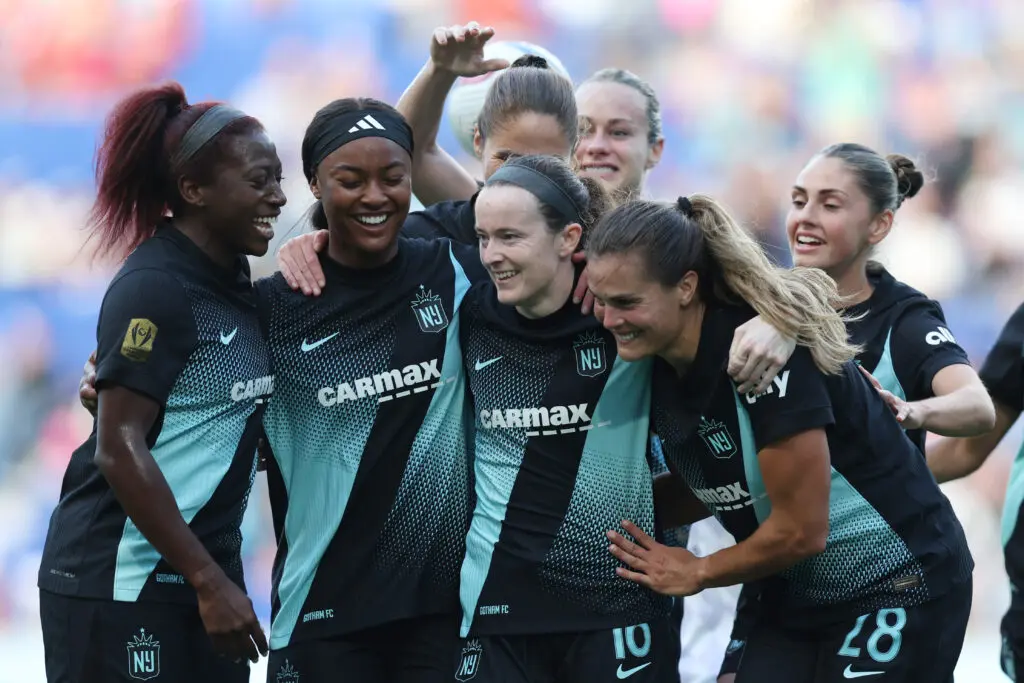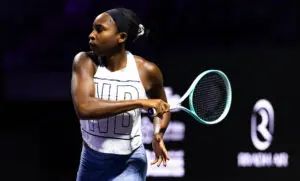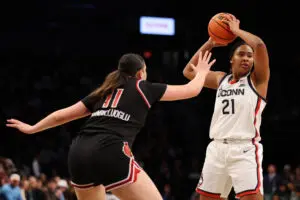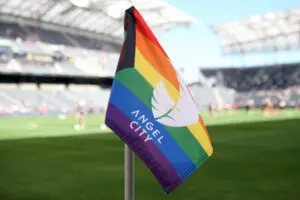Amid rumors that Liz Cambage “quit” the team after playing 24 games in Los Angeles, she and the Sparks have agreed to a “contract divorce,” the team announced Tuesday.
“It is with support that we share Liz Cambage’s decision to terminate her contract with the organization,” said Sparks Managing Partner Eric Holoman. “We want what’s best for Liz and have agreed to part ways amicably. The Sparks remain excited about our core group and are focused on our run towards a 2022 playoff berth.”
According to a Yahoo Sports report, Cambage exited the locker room after her team’s 84-66 loss to the Aces, her former squad, and left the team with a parting message: “I can’t do this anymore. Best of luck to you guys.”
Cambage is not the first to go through a contract divorce this season. It’s a term WNBA fans have heard four other times in 2022. The most significant, and most recent, was that of eight-time All-Star Tina Charles, who departed the Mercury on June 25 before joining the Storm. Angel McCoughtry (Lynx), Jantel Lavender (Fever) and Bria Hartley (Fever) have also negotiated contract divorces from their respective teams.
Here’s Cambage’s situation, explained.
What is a contract divorce?
A contract divorce is pretty much what it sounds like. The two parties — in this case, Cambage and the Sparks — agree to terminate their legally binding agreement in a way in which both sides benefit. Essentially, it’s a fancy term for a buyout.
Cambage, who signed a one-year, $170,000 deal with the Sparks in February, reportedly agreed to $141,386 in exchange for the contract divorce. That figure reflects the per-game rate of the 25 games she played for the Sparks this season.
The Sparks’ chemistry issues have been building all season, according to multiple reports. While a preseason of heightened expectations turned into lackluster performances, the sixth-place Sparks remain in the playoff hunt at 12-15 with nine games to play. The team clearly feels it will no longer benefit from Cambage’s services, and the 30-year-old no longer wishes to play for L.A.
What does it mean for the Sparks?
Beyond what was going on behind the scenes and in conversations and body language on the court, the 6-foot-8 center was making an impact on the Sparks’ box score. She was L.A.’s second-leading scorer and rebounder, averaging 13 points, 6.4 rebounds and 1.6 assists per game. Defensively, she led the Sparks with 1.6 blocks per contest.
Without Cambage, the Sparks will need to find someone — or more than likely, a combination of people — to replace her 24.5 minutes per game. At first glance, losing Cambage’s on-court abilities isn’t ideal for the playoff hopeful Sparks. But chemistry issues among players have a way of coming out in high-pressure situations. Replacing Cambage won’t be easy, but it’s better to part ways now than to wait and have the team fall apart in the postseason. At least this way, the Sparks have time to figure out a solution.
As it stands, their options at the post position are limited. After Nneka Ogwumike, who at 18.7 points and 6.8 rebounds per game is likely maxed out in terms of production, the Sparks have four forwards/centers listed on their roster. One is Katie Lou Samuelson, who is more of a guard. They will likely turn to Chiney Ogwumike, who out of the remaining forwards plays the most minutes (18.5) and has the highest production (7.5 points). After her, Olivia Nelson-Ododa and Jasmine Walker combine to average 4.2 points per game.

To make matters worse, Cambage’s departure isn’t the only dramatic exit the Sparks have endured in recent years.
In 2021, both Candace Parker and Chelsea Gray left the team as free agents, with Parker signing with the Sky and Gray with the Aces. Losing a player in free agency isn’t as dramatic as a contract divorce, of course, but it begs the question: “How did L.A. lose not one, but two top talents to other teams?”
It wasn’t a good look for the Sparks, and led to continued questions about coach and GM Derek Fisher’s leadership. Those questions came to a head on June 7 when he was let go.
There’s also the issue of Chennedy Carter, who signed with the Sparks in free agency after a contentious 2021 season with the Dream. Despite internal opposition to the move, as The Athletic has reported, Fisher pushed for the Sparks to trade for Carter. The guard, after not playing the second half of last season while suspended, has averaged just 15.3 minutes across 19 games for Los Angeles this year.
The Sparks, despite all the turmoil, are somehow still in the playoff hunt. The best they can do at this point is muddle through the rest of the season, hope for a playoff berth and then get to work on a total rebuild in the offseason.
What does it mean for Liz Cambage?
This isn’t the first time Cambage has been embroiled in controversy. Most recently she had a messy exit from the Opals, Australia’s women’s national team. In November, Cambage was reprimanded for an on-court altercation during a practice game with Nigeria. She then withdrew from the Tokyo Olympic team, citing mental health concerns and eventually said on Instagram that she would never play for the team again.
The exact details of the altercation are unknown, with plenty of rumors swirling. But former Opals teammate Jenna O’Hea confirmed to Australian journalist Kelli Underwood in May that Cambage had told Nigerian players to “go back to your third world country.”
Cambage denies the claim.
It’s not a stretch to see the connections between Cambage’s supposed comments about Nigeria and her exit from the Sparks. Nneka and Chiney Ogwumike, two of her LA teammates, are Nigerian and seeking to play for the Nigerian national team.
It’s also not a stretch to say that we may not see Cambage in the WNBA again.
After Cambage’s rookie season with the Tulsa Shock in 2011, she left the WNBA for four seasons because she didn’t want to play for the franchise. Her exit from Tulsa started in 2012, when Cambage said she would sit out the rest of the season following the Olympics due to exhaustion. She did not return to Tulsa, instead choosing to sign with a team in China.
It’s worth noting that Cambage has not played more than one consecutive season with any WNBA squad since being drafted in 2011, a tenure that included stops in Dallas and Las Vegas. With her latest departure, Cambage may no longer be a risk teams are willing to take.
Eden Laase is a Staff Writer at Just Women’s Sports. Follow her on Twitter @eden_laase.
